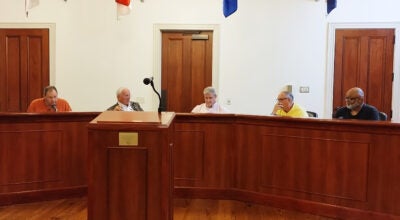Standardizing the classroom
Published 12:05 am Saturday, November 20, 2010
The state Board of Education voted Thursday to approve a resolution adopting common core standards that will put Alabama’s math and English students in line with those of at least 40 other states.
The 7-2 vote came at the conclusion of a three-hour meeting that saw 40 audience members speak out either for or against the proposal. The 22 dissenters included Gov.-elect Robert Bentley, who was represented at the meeting by Sen. Scott Beason. R-Gardendale.
“I feel that it is unfair to pass standards such as this when there is an incoming, newly elected school board,” Beason read from a statement prepared by Bentley. “If you do not (delay the vote) and pass these standards, I go on record opposing this action.”
The debate over the adoption of the standards revolves around the federal government’s involvement in the educational process. The standards themselves represent the work of the Council of Chief State School Officers and the National Governors Association.
Board member Betty Peters, who voted against the adoption of the resolution, pointed out that the state-led initiative really began to take on a federal feel last year when President Barack Obama offered to give states extra points in their applications for federal Race to the Top grant money if they adopted the standards.
Such trepidation has proven enough to keep at least two other states – Alaska and Texas – from adopting the standards. In an effort to safeguard against the potential for the state-led effort becoming a federal standardization of education, board member David Byers, who drafted the resolution, amended the resolution adopted by the board to add a clause allowing the board to revoke the standards at any time.
Alabama Gov. Bob Riley cast his vote in favor of the resolution, citing his belief that the initiative does not put individual states at risk of losing control of the curriculum choices affecting their students.
“This was set up primarily to make sure the federal government could not dictate the curriculum,” Riley said. “There is nothing that says the governor or the next board can’t come in here next year and reverse this decision. I hope they don’t, but we don’t need to delay this anymore.”
Amid all the political debate that is likely just beginning is the tangible effect the adoption of the standards will have in the classroom. In order to determine that the state Department of Education assembled a team of educators to conduct a comparison study between the current state curriculum and the Common Core State Standards in question. The team found Alabama’s current standards address 92 percent of the English language arts national standards and 96 percent of math.
“We’re hoping it doesn’t result in gigantic change,” Demopolis City Schools Superintendent Dr. Al Griffin said. “I feel certain that we will have the independent line items (to be addressed) identified and relayed to the superintendents fairly quickly.”
“It’s really going to be a non-issue for us,” Superintendent Luke Hallmark told the Marengo County Board of Education said. “I think it’s got some good to it. The only negative thing you may see is that it does have some federal ties to it. But I think overall it will be a good thing for our school system.”
The adoption of the standards fits in line with the state’s decision to implement new end of course assessments. Superintendents learned at a the recent fall conference that Alabama is participating in two consortiums with other Common Core participating states in an effort to bring about a next generation assessment system. The next generation assessments are planned to go into effect in the 2014-15 school year while the Common Core standards take effect in Alabama beginning in the 2012-13 school year.





